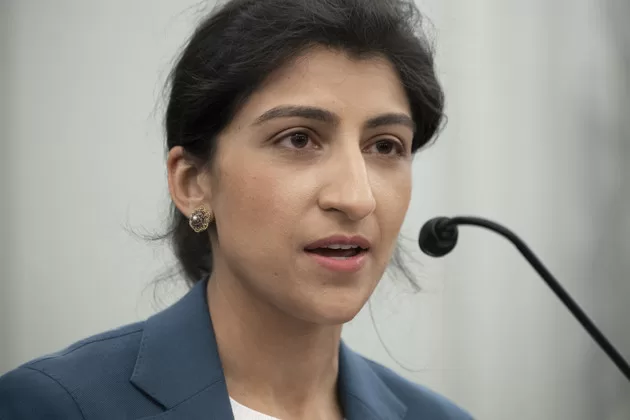The discussions are largely limited to Microsoft and OpenAI and are not part of a broader dialogue over which agency will investigate artificial intelligence issues, the people said. However, there is a separate interagency debate that started more recently over who can investigate these companies for allegedly illegally scraping content from websites to train their AI models, according to some of the people.
Companies must report most deals for review by federal antitrust regulators, but Microsoft and OpenAI did not. Microsoft maintains it does not exercise any control over OpenAI, which is a limited for-profit company controlled by a nonprofit organization. That lack of control has been called into question following Microsoft’s role in the rehiring of OpenAI CEO Sam Altman days after he was fired late last year.
Both agencies are monitoring the situation with Altman and Microsoft’s involvement, the people said.
Regulators’ concerns include whether the partnership gives both companies unfair advantages in the rapidly evolving market for artificial intelligence, particularly around the technology used for large language models, according to the people.
There is no law barring both agencies from investigating the same matter, but in the interest of comity, they have historically not done so.
The issue came to a head most prominently in 2019 when then-FTC Chair Joseph Simons and then-DOJ antitrust chief Makan Delrahim reached a handshake deal to allow the FTC to pursue monopolization investigations into Meta (then Facebook) and Amazon, while the DOJ would handle investigations of Google and Apple. That agreement was reached after roughly a year of negotiations, according to people with knowledge of the process.
Following that agreement, the DOJ decided to investigate Meta anyway, causing tension between the two agencies, according to those same people. That was short-lived however, with the DOJ eventually ceding ground to its sister agency.
“Under Lina Khan the FTC works in harmony with [DOJ antitrust head] Jonathan Kanter and our DOJ colleagues to vigorously enforce the antitrust laws,” said FTC spokesperson Douglas Farrar in a statement. “Our joint clearance process with the DOJ is seamless, and that lets both agencies effectively use their resources to protect American consumers from higher prices and unfair competition,” he added, referring to the process by which the two agencies divvy up jurisdiction.
Lina Khan has made it a priority to focus on so-called unfair methods of competition.
|
Saul Loeb/AP
A DOJ spokesperson declined to comment.
Khan and Kanter have made competition in artificial intelligence a top priority. It factored heavily in the recently concluded trial against Google, with the DOJ arguing that Google’s existing search monopoly will boost its chances in the AI market given its access to the enormous data needed to train its AI models. The FTC has made multiple
public
statements highlighting its work in AI and is holding a
workshop later this month.
A Microsoft spokesperson did not have a comment, instead referencing a Dec. 8
post on X by the company’s president, Brad Smith, who said the partnership “has fostered more AI innovation and competition, while preserving independence for both companies.”
A spokesperson for OpenAI did not respond for comment.
When both agencies want to investigate the same matter, it will often come down to who has the appropriate expertise.
Aside from the FTC’s investigation of Microsoft’s Activision Blizzard takeover, the Justice Department has historically handled cases involving Microsoft. And internet search is a core part of the OpenAI partnership, an issue the DOJ has investigated extensively as part of multiple investigations and lawsuits against Google. The FTC is challenging Microsoft’s recent takeover of Activision Blizzard but has agreed not to use that as leverage in future jurisdictional negotiations with the DOJ, according to two people with knowledge of the matter.
However, the FTC, which also investigates consumer protection issues, has an ongoing probe of OpenAI over potential unfair and deceptive practices, including consumer privacy issues, and is doing a
broad review of the cloud computing market, a key technology for LLMs. And the FTC has a deep bench of technology expertise. It has long had a chief technologist on staff and recently launched an Office of Technology which works on cases across the agency. The leadership of the prominent research organization AINow also recently did stints at the FTC as advisers to Khan.
Kanter has also made it a priority to upgrade the antitrust division’s technological resources.
The FTC however does not have jurisdiction over nonprofits. That issue came up several years ago when the DOJ
investigated a deal between two nonprofit Pennsylvania hospital companies. While the FTC typically investigates hospital mergers, the DOJ handled that case because it involved nonprofits.
The FTC does have broader legal authority, particularly its ability to prosecute competition concerns that fall outside the scope of the federal antitrust laws. Khan has made it a priority to focus on so-called unfair methods of competition.
The jurisdictional split between the agencies is typically uncontested. The FTC, for example, investigates pharmaceutical mergers, and the DOJ handles industries such as airlines and insurance.
The split though can be fuzzy and somewhat arbitrary. The FTC, for example, investigates liquor and wine companies, while the DOJ investigates the beer industry. The lines are especially blurred with large technology platforms that operate many different lines of business.
The Microsoft-OpenAI partnership has garnered antitrust scrutiny on both sides of the Atlantic, with both the
UK’s Competition and Markets Authority and
European Commission scrutinizing the deal.
